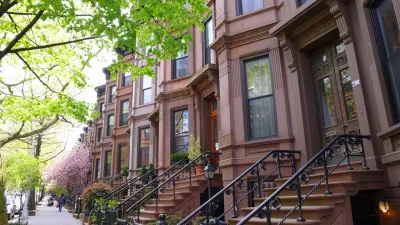Amidst a crisis of housing affordability around the country, one media organization is leveraging public records law to discover answers to questions, long obscured from the public, about who controls the real estate market.

Jade Hindmon and Marissa Cabrera report:
The debate over California's housing crisis tends to center on the lack of housing and how much more housing needs to be built to meet demand.
But there's another part of the conversation that often gets left out. It has to do with who owns the housing that already exists.
Another journalist, Aaron Glantz, is leveraging public records to fill gaps in public knowledge about the real estate market. Glantz and colleagues at Reveal have sued the Treasury Department to find out more about the "secret landlords" controlling the housing market.
An article by Glantz, written in December, provides more information about what we do know about how anonymous shell companies hide their wealth in real estate:
All-cash transactions have come to account for a quarter of all residential real estate purchases, “totaling hundreds of billions of dollars nationwide,” the Financial Crimes Enforcement Network – the financial crimes unit of the federal Treasury Department, also known as FinCEN – noted in a 2017 news release. Thanks to the Bank Secrecy Act, a 1970 anti-money-laundering law, the agency is able to learn who owns many of these properties. In high-cost cities such as New York, San Francisco, Los Angeles and Miami, it’s flagged over 30% of cash purchases as suspicious transactions. But FinCEN also cites this bill to hide this information from the public, leaving the American people increasingly in the dark about who owns their cities.
The article linked below includes an interview with Glantz for Midday Edition, a show airing on KPBS in San Diego.
FULL STORY: Public Radio Program Sues To Uncover Secret Landlords Buying Up America’s Cities

Maui's Vacation Rental Debate Turns Ugly
Verbal attacks, misinformation campaigns and fistfights plague a high-stakes debate to convert thousands of vacation rentals into long-term housing.

Planetizen Federal Action Tracker
A weekly monitor of how Trump’s orders and actions are impacting planners and planning in America.

San Francisco Suspends Traffic Calming Amidst Record Deaths
Citing “a challenging fiscal landscape,” the city will cease the program on the heels of 42 traffic deaths, including 24 pedestrians.

Defunct Pittsburgh Power Plant to Become Residential Tower
A decommissioned steam heat plant will be redeveloped into almost 100 affordable housing units.

Trump Prompts Restructuring of Transportation Research Board in “Unprecedented Overreach”
The TRB has eliminated more than half of its committees including those focused on climate, equity, and cities.

Amtrak Rolls Out New Orleans to Alabama “Mardi Gras” Train
The new service will operate morning and evening departures between Mobile and New Orleans.
Urban Design for Planners 1: Software Tools
This six-course series explores essential urban design concepts using open source software and equips planners with the tools they need to participate fully in the urban design process.
Planning for Universal Design
Learn the tools for implementing Universal Design in planning regulations.
Heyer Gruel & Associates PA
JM Goldson LLC
Custer County Colorado
City of Camden Redevelopment Agency
City of Astoria
Transportation Research & Education Center (TREC) at Portland State University
Jefferson Parish Government
Camden Redevelopment Agency
City of Claremont



























